03:17
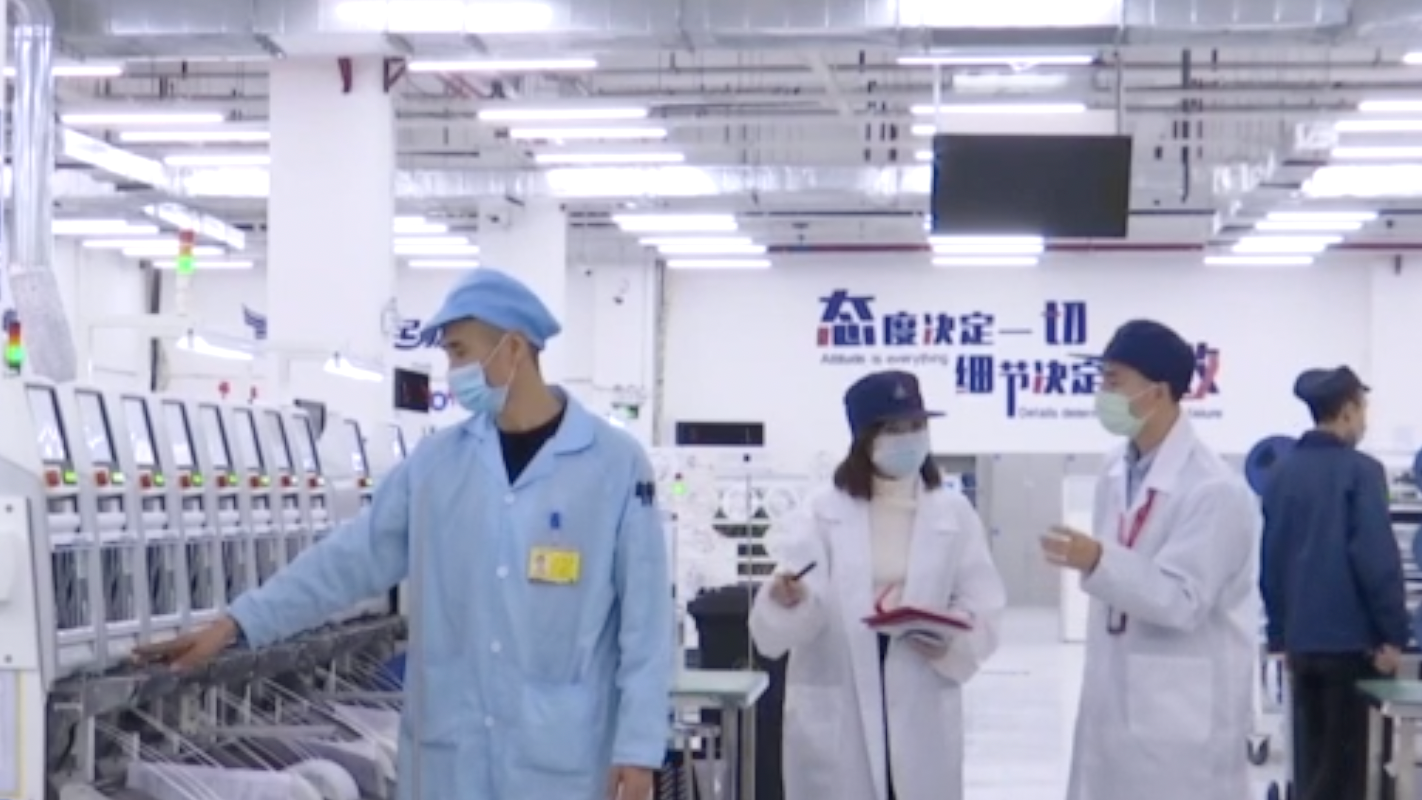
Sichuan AI-Link Technology, China's major Internet of Things (IoT) module maker, is confident it can still achieve its full year 2020 revenue target despite supply chain disruption amid the novel coronavirus outbreak.
The company, which is about 70 percent-owned by Changhong, one of China's largest consumer electronics companies, makes about 12 million modules of various sorts per month.
"We most likely will fall short of our first quarter financial targets, but we remain confident to achieve our full year 2020 goal – which is a 10 percent increase in revenue from last year's one billion yuan mark," Liu Xiaoping, vice president of Sichuan AI-Link, told CGTN.
Established in December 2016 as a key unit of Changhong's state-owned enterprise reform and employees shareholding pilot project, Sichuan AI-Link's technology is also backed by its mother company's high frequency electronic tuner.
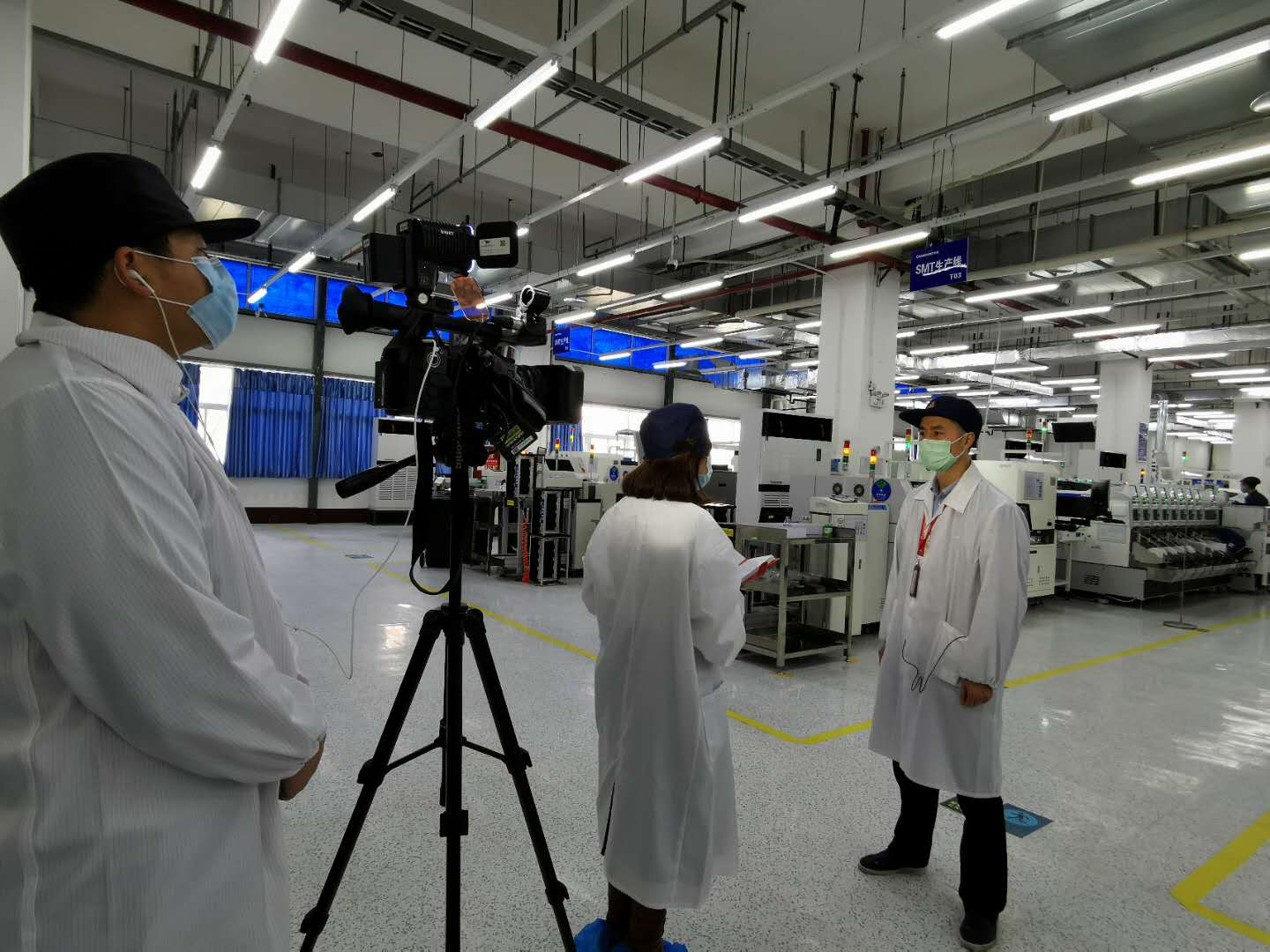
Liu Xiaoping, vice president of Sichuan AI-Link, said the company has seen operations and capacity resumed to 90 percent. /CGTN
Liu Xiaoping, vice president of Sichuan AI-Link, said the company has seen operations and capacity resumed to 90 percent. /CGTN
The company has resumed operations on February 10 – a one-week delay from the slated date of February 3.
Most of its 600-strong staff have returned to work, with the remaining still gradually returning to work in batches. Some were under self-quarantine before, having returned from outside of the city and province.
Staff members have their body temperature checked upon entering the office compound, while plant areas are disinfected twice a day – once in the morning, and once in the afternoon.
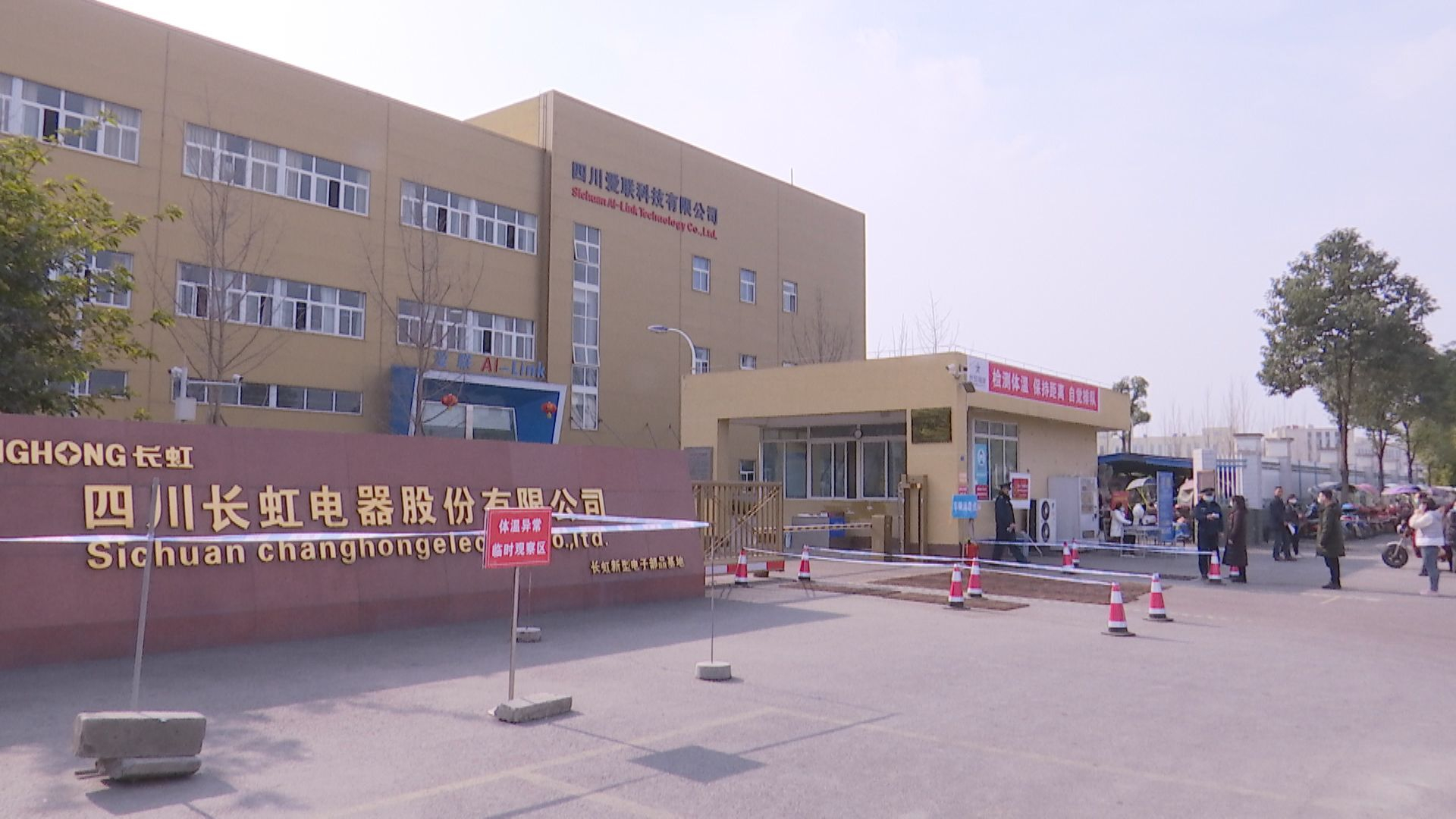
Employees of Sichuan AI-Link having their body temperature checked upon entering their office compound located in Mianyang City, Sichuan Province. /CGTN
Employees of Sichuan AI-Link having their body temperature checked upon entering their office compound located in Mianyang City, Sichuan Province. /CGTN
Key challenge: Sourcing of parts, components
While capacity is now running at 90 percent, Liu said the main challenge facing the company remains: the sourcing of ample key components and parts.
This comes as electrical parts form a bulk of Sichuan AI-Link's costs.
"Our upstream suppliers of electrical components are gradually resuming work, but not all at the same time. We have over a hundred suppliers. If one's unable to resume work, it will affect our entire production," he said.
Liu said about 80 percent of the company's suppliers have resumed work, although there are some which are located in more heavily-struck disaster areas. "For example, our socket suppliers are from Wenzhou."
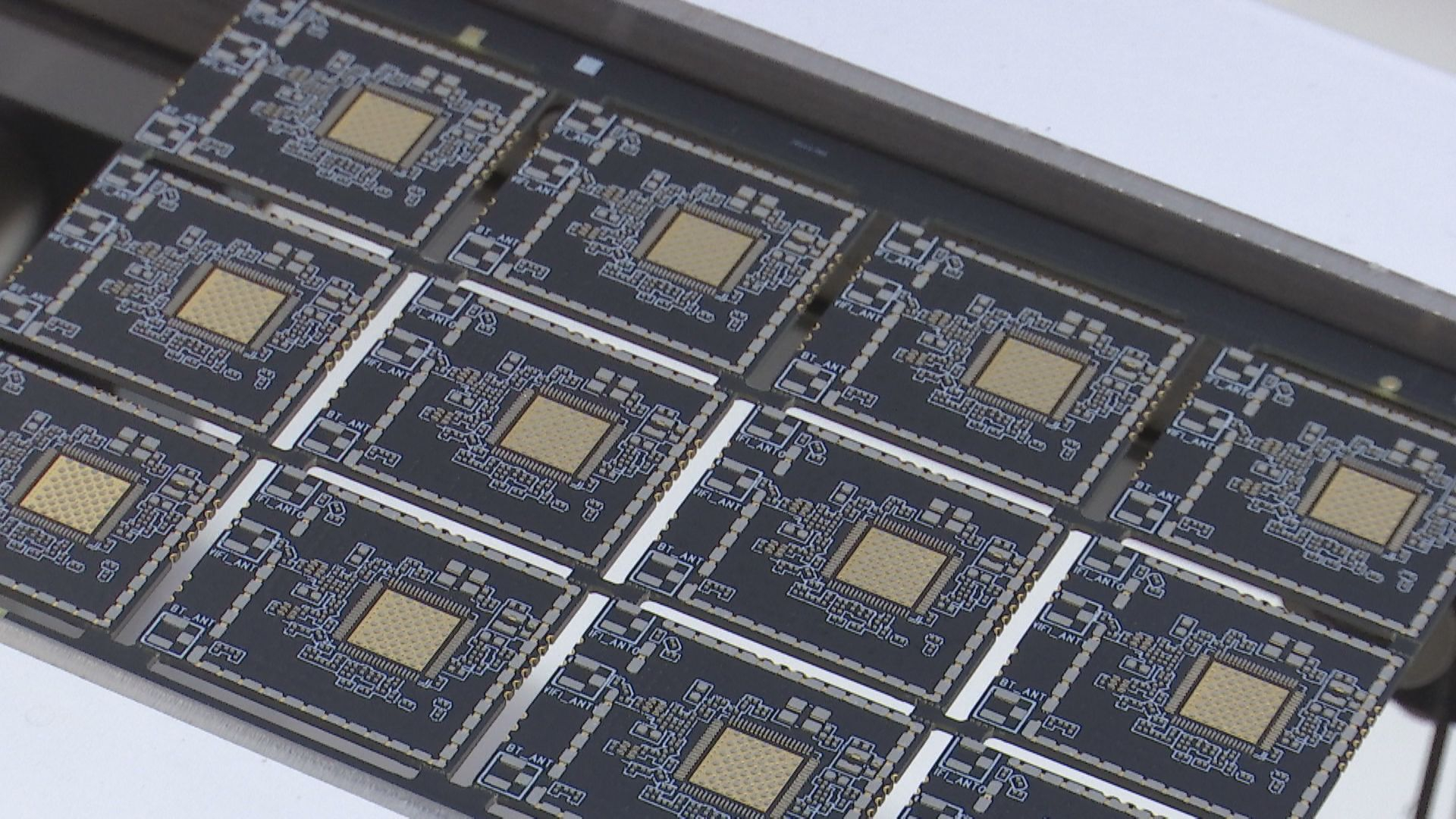
An IoT module has over a hundred electrical components in it, said Sichuan AI-Link. /CGTN
An IoT module has over a hundred electrical components in it, said Sichuan AI-Link. /CGTN
He added that Sichuan AI-Link has about a month's worth of raw materials to work on, for now.
"We are gradually looking for alternative suppliers of components to expand our supplier base, to ensure our long-term operations are not affected. It takes time, but it's possible," he shared.
"We also plan to hire more workers, and to get everyone to work overtime, to ensure our orders are made and delivered on time."
Bright spots: Potential new businesses and 5G module launch
Feng Yi, vice president of the company, said while it faces supply chain disruptions, he's comforted that its suppliers are slowly resuming work.
"For smaller businesses which are facing difficulties, we have been helping provide masks and temperature detecting devices to some of them, to help them get off the ground again," he told CGTN.
"But say if they really cannot deliver in time, we will talk to our customers and negotiate for a delay," Feng said, adding that overseas projects most likely would see a delay.
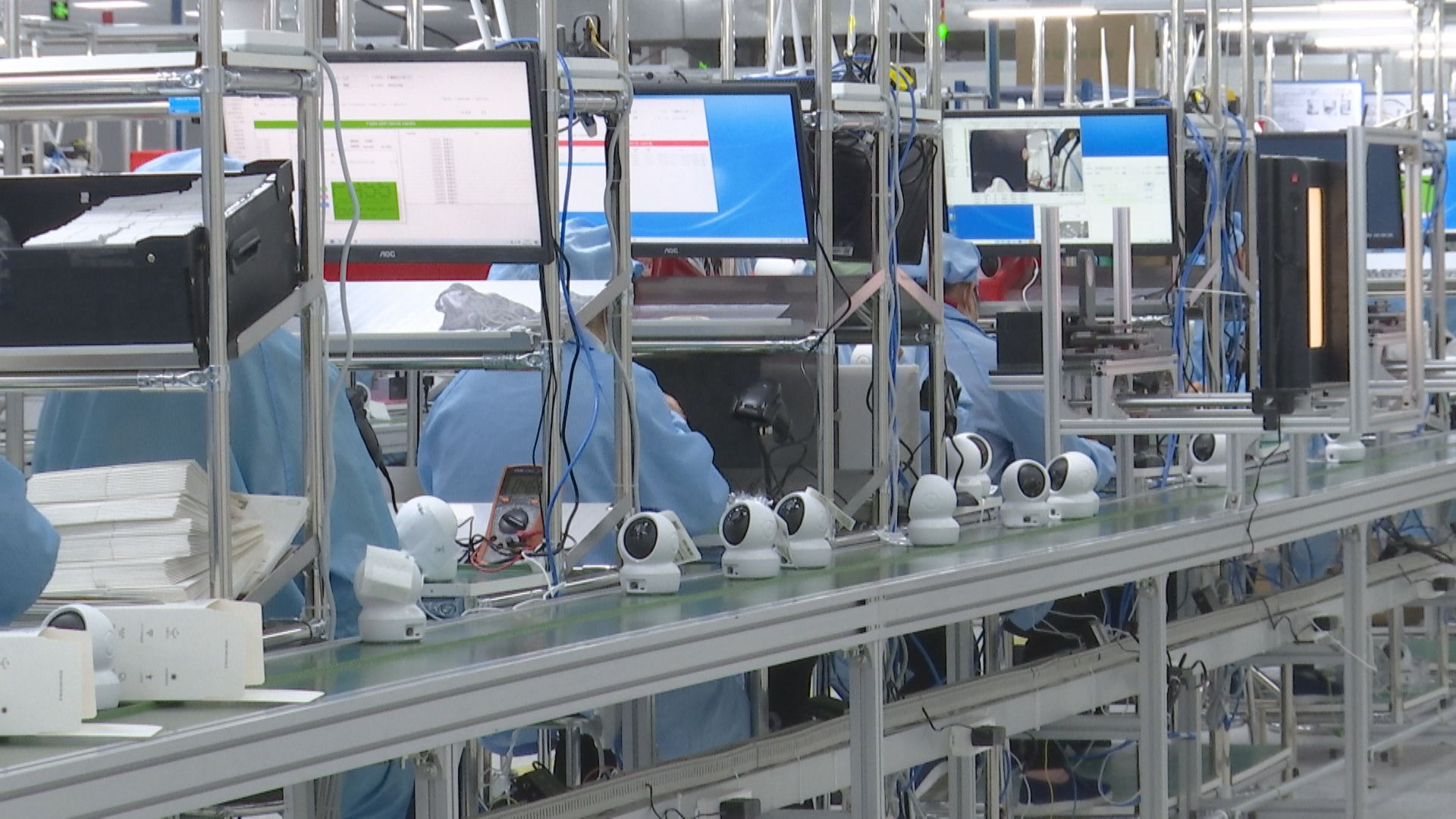
Demand for modules for camera sensors have increased due to the coronavirus outbreak. /CGTN
Demand for modules for camera sensors have increased due to the coronavirus outbreak. /CGTN
Sichuan AI-Link makes and assembles modules that are inserted into smart home devices such as air conditioner, TV, shared bikes. It counts Microsoft, T-Mobile, and Huawei as clients.
The company is principally strong in making IoT modules for camera sensors, and is mulling to expand its business into manufacturing wireless temperature detecting cameras, Feng said.
Additionally, amid the COVID-19 outbreak, Sichuan AI-Link has launched the world's first-ever 5G industrial IoT module. The modules were launched on time on February 20, along with HiSilicon, a global fabless semiconductor company.
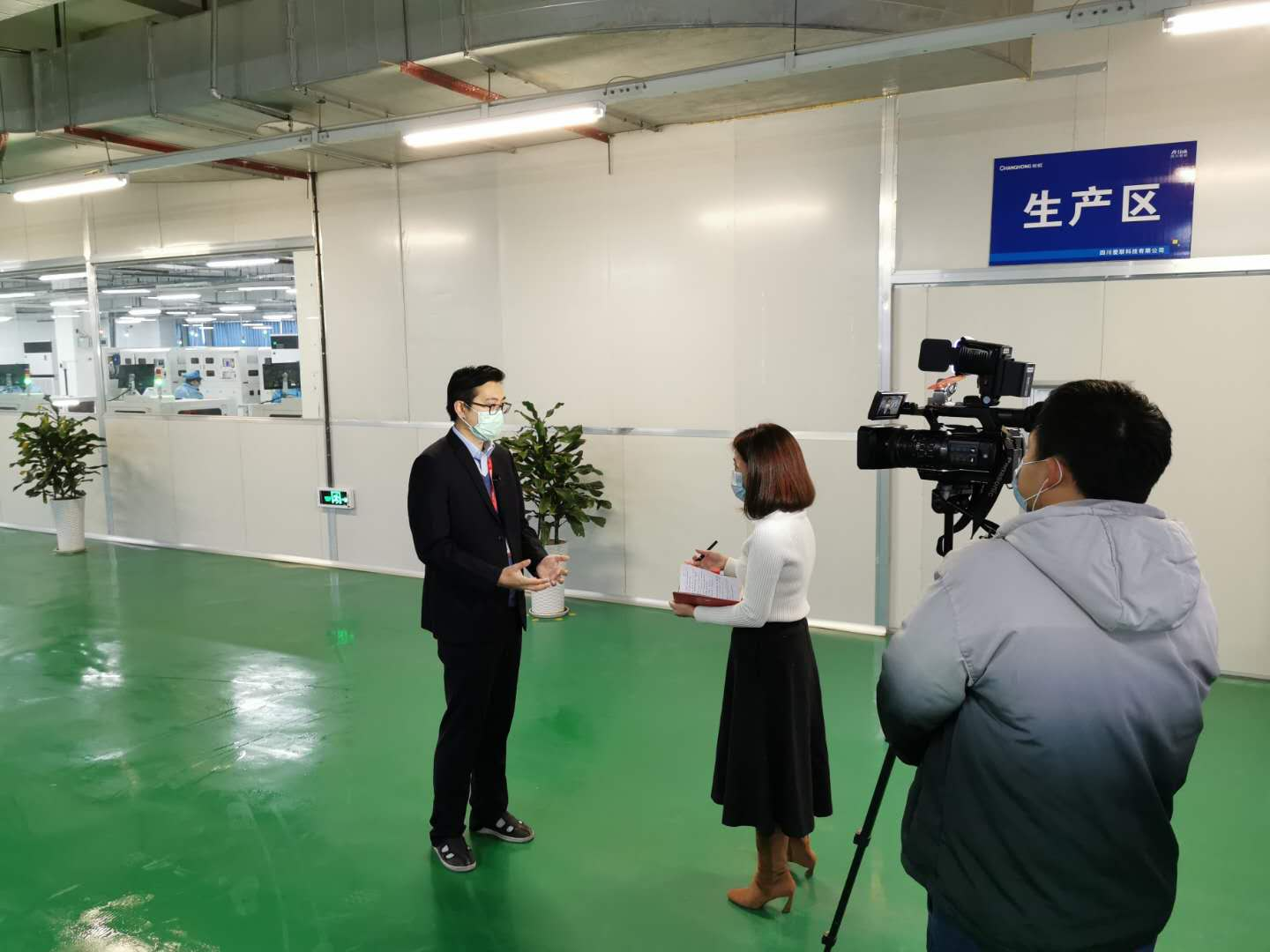
Feng Yi, vice president of Sichuan AI-Link, said the launch of the first-ever 5G industrial IoT module is a game changer for the company. /CGTN
Feng Yi, vice president of Sichuan AI-Link, said the launch of the first-ever 5G industrial IoT module is a game changer for the company. /CGTN
"We launched three modules for video streaming, manufacturing, smart traffic industries. These modules can work at a temperature range of between -40 and 85 degrees. Plus it's fast and stable."
"Our R&D team couldn't report to the office during the outbreak, but they worked remotely from home on this project during the extended holidays," Feng shared.
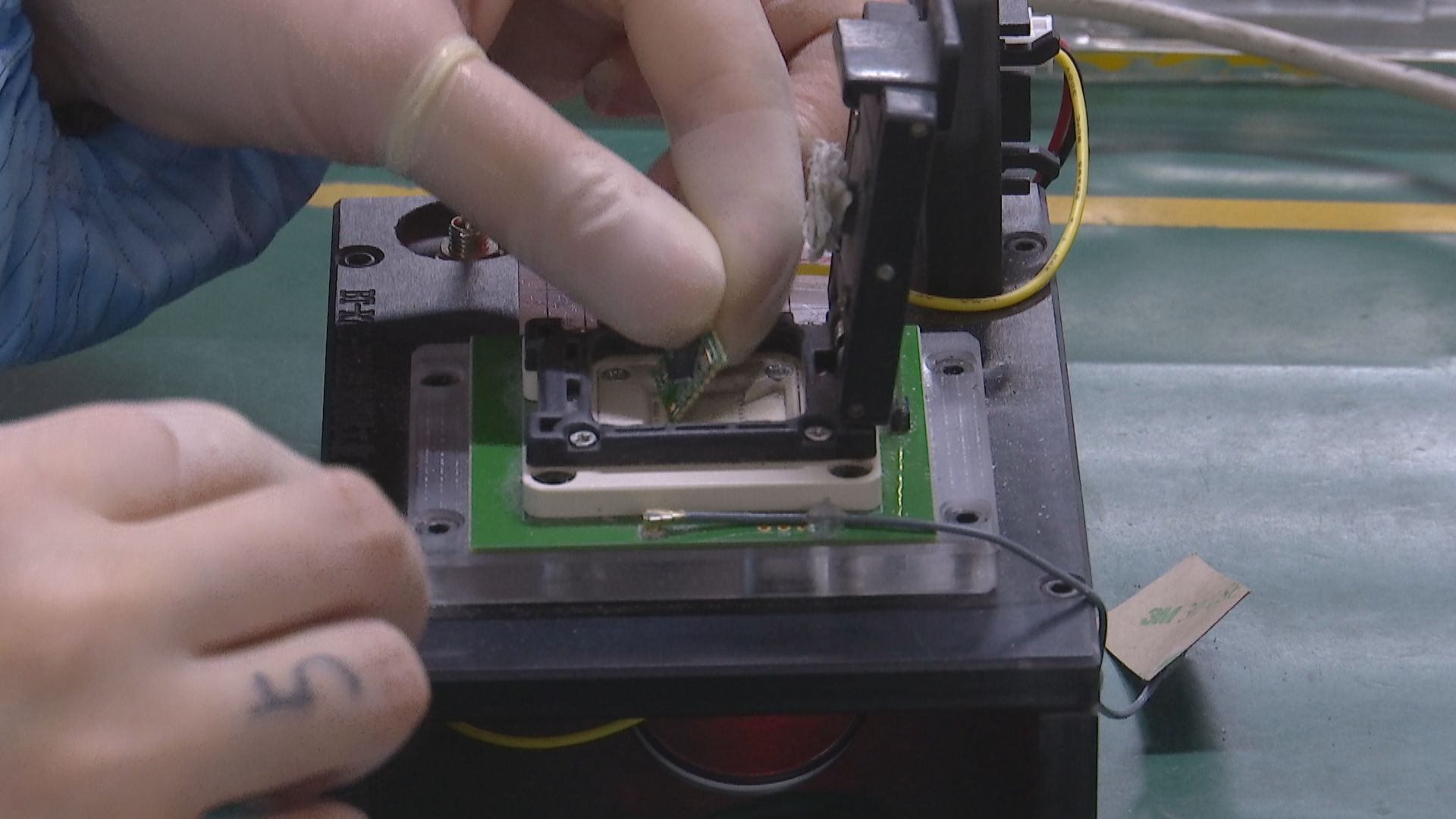
An employee tests a module. /CGTN
An employee tests a module. /CGTN
Feng said the launch of the 5G module is a game-changer for Sichuan AI-Link, stating that the potential for the IoT industry is "only starting."
"As more people move online, China will deepen its supply chain for modules," he said.
"Resuming work is very important to us. It's a promise to our suppliers, our customers, our employees and their families," Feng added.